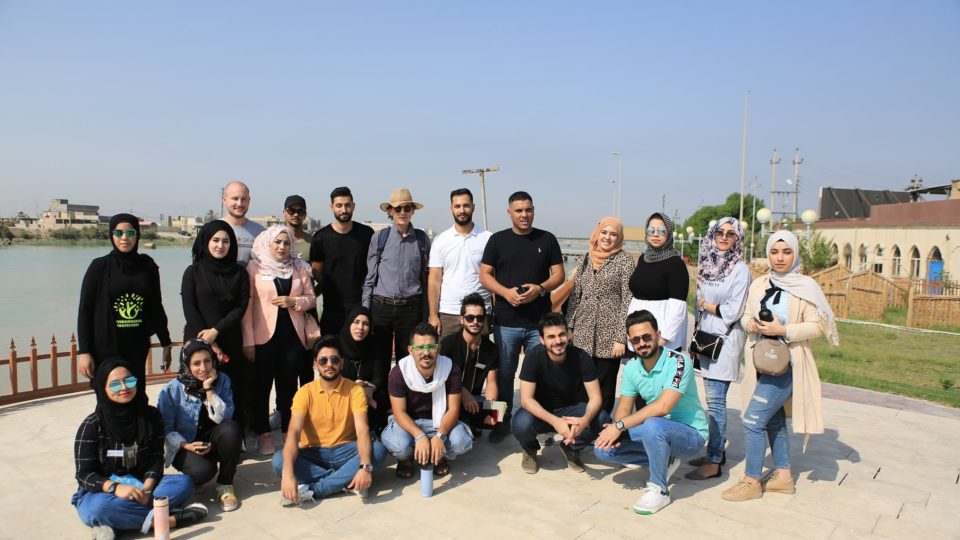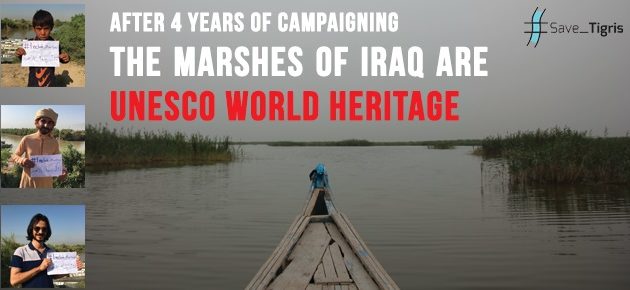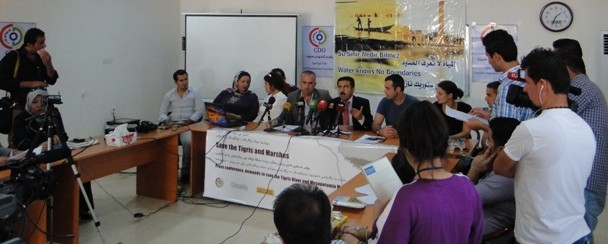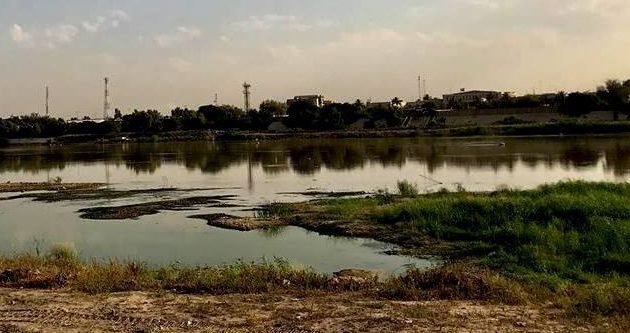Building the Network of Water Activists in Basra
It’s been one year since the city of Basra was rocked by large-scale protests following a major pollution crisis in which citizens decried the lack of access to fresh water and services. Earlier this year, Human Rights Watch released an extensive report on the crisis. One year onward, Save the Tigris Campaign traveled to the city to encounter a new group of young activists from our partner organisation Humat al-Forat. The program consisted of a 2-day training, a visit to the Environmental Department of Basra and an excursion to key water sites.
20 youth, predominantly female, attended the first training of Save the Tigris in Basra, conducted by Salman Khairalla and Ali Alkarkhi of Humat Dijlah and Toon Bijnens and Nick Hildyard of Save the Tigris. The first part of the training touched upon identifying some of the water issues in Basra and a presentation of the work that has been done so far by Save the Tigris, and the revitalization of the marshlands, for which Basra serves as a base. The activist-trainers discussed the campaign techniques used to advocate for water protection within the context of Mesopotamia and Iraq. The trainees were given the opportunity to ask plenty of questions. The importance of solidarity networks both within Iraq and outside of Iraq were stressed. A network of local river protectors exists within Humat Alforat, a sister organisation of Humat Dijlah for cities on the Euphrates river. The group in Basra will be part of this network. The trainees were divided into working groups to come up with their own campaigns.
In addition, the program included a visit to civil servants of the Environmental Department in Basra. An important opportunity for local youth to start a direct dialogue with local authorities on the water crisis in Basra which can hopefully lay a basis for future consultations between civil society and authorities. The officials gave a brief overview of current restoration efforts in the Marshes and an update of measurements taken in response to last year’s crisis in Basra. Trainees were encouraged to ask questions. At the end of the day, trainees participated in a solidarity action for Hasankeyf, the ancient town in Turkey to be submerged once Ilisu Dam is operating.
On the last day, the group traveled by bus to the Central Marshes for an excursion. They stopped in Qurna, to visit the confluence of the Tigris and Euphrates Rivers where it flows into the Shatt al-Arab. A unique spot where two mythical rivers meet. Then the group toured the marshlands by mashoof (traditional boat). For some of them it was their first experience in this UNESCO World Heritage Site, which depends on upstream water flows.
The training will most definitely be a start of a new initiative of youth water activists in the city of Basra. To be continued.




